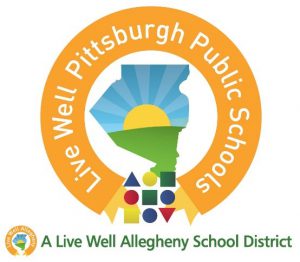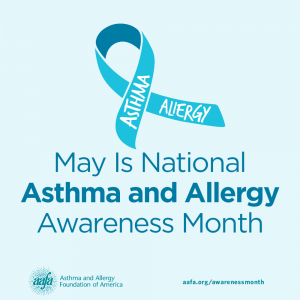ACHD Participates in Teen Expo at Duquesne University
 ACHD Injury Prevention Staff and partners presented the first Teen Drivers Safety Expo at Duquesne University on Thursday, March 17, 2022. We worked with the following partners to organize the event: AAA, PA Traffic Injury Prevention Project, Port Authority Police, Allegheny County Police, and the Duquesne University Police.
ACHD Injury Prevention Staff and partners presented the first Teen Drivers Safety Expo at Duquesne University on Thursday, March 17, 2022. We worked with the following partners to organize the event: AAA, PA Traffic Injury Prevention Project, Port Authority Police, Allegheny County Police, and the Duquesne University Police.
The Teen Expo gives students the opportunity to practice safe driver and passenger behaviors while they learn about highway safety by playing games and participating in fun activities. One activity students participated in was trying to complete a maze while using weed goggles. The goggles simulate the effects of marijuana that result in delayed decision-making skills.
Another activity was conducted with our local law enforcement officers, including the Allegheny County and Port Authority Police Officers. This activity used the ‘beer goggles’ to conduct field sobriety tests. The sobriety test is similar to those used if an officer thought a driver was impaired. While the results of the maze and the field sobriety tests were often funny in this relaxed setting, the intent is to make the students aware of the dangers of smoking marijuana and how this impacts their decision-making skills while they are driving or even taking a test while impaired.


 Nationally, only one in four adults meet national standards for combined aerobic and muscle strengthening. Active People, Healthy NationSM is a national initiative led by the CDC to help 27 million Americans become more physically active by 2027.
Nationally, only one in four adults meet national standards for combined aerobic and muscle strengthening. Active People, Healthy NationSM is a national initiative led by the CDC to help 27 million Americans become more physically active by 2027. Tobacco Free Adagio Health (TFAH) is the Regional Primary Contractor for the Pennsylvania Department of Health’s tobacco prevention and control work in Allegheny County. The goal of TFAH is to assist smokers in quitting and prevent new users from starting.
Tobacco Free Adagio Health (TFAH) is the Regional Primary Contractor for the Pennsylvania Department of Health’s tobacco prevention and control work in Allegheny County. The goal of TFAH is to assist smokers in quitting and prevent new users from starting. The Good Food Purchasing Policy (GFFP) was created by the Center for Good Food Purchasing. This policy helps institutions prioritize healthy, sustainable, regional, and fair foods in their purchasing contracts. The Pittsburgh Food Policy Council is working with Pittsburgh Public Schools and other community partners to create, promote and help implement a “Good Food Purchasing Policy” in the district.
The Good Food Purchasing Policy (GFFP) was created by the Center for Good Food Purchasing. This policy helps institutions prioritize healthy, sustainable, regional, and fair foods in their purchasing contracts. The Pittsburgh Food Policy Council is working with Pittsburgh Public Schools and other community partners to create, promote and help implement a “Good Food Purchasing Policy” in the district. The Food Trust’s Food Bucks program, in partnership with
The Food Trust’s Food Bucks program, in partnership with  The Allegheny County Health Department is teaming up with local and national partners to address disparities in African-American communities. The REACH program, a Centers for Disease Control and Prevention (CDC) -funded initiative, aims to achieve health equity and prevent chronic disease.
The Allegheny County Health Department is teaming up with local and national partners to address disparities in African-American communities. The REACH program, a Centers for Disease Control and Prevention (CDC) -funded initiative, aims to achieve health equity and prevent chronic disease. May is peak allergy and asthma season for most people in the U.S., which is why the Asthma and Allergy Foundation of America (AAFA) declared May “National Asthma and Allergy Awareness Month.” Nationally, about 25 million Americans have asthma, 1 in 5 of those are children.
May is peak allergy and asthma season for most people in the U.S., which is why the Asthma and Allergy Foundation of America (AAFA) declared May “National Asthma and Allergy Awareness Month.” Nationally, about 25 million Americans have asthma, 1 in 5 of those are children. At the beginning of 2021 five new Pitt Eats dining locations on the University of Pittsburgh’s campus became the newest Live Well Allegheny Restaurants. They are
At the beginning of 2021 five new Pitt Eats dining locations on the University of Pittsburgh’s campus became the newest Live Well Allegheny Restaurants. They are  We believe serving healthy and nutritious food provides a foundation for lifelong learning. We are proud to feed future leaders and understand the immense responsibility to nourish our guests’ minds and bodies. We believe that wellness goes beyond our dining halls. To support a well-balanced healthy lifestyle, we create programs that help our guests live life to its fullest. From sourcing our ingredients to preparing our menus, we keep health and wellness at the forefront of everything we do.
We believe serving healthy and nutritious food provides a foundation for lifelong learning. We are proud to feed future leaders and understand the immense responsibility to nourish our guests’ minds and bodies. We believe that wellness goes beyond our dining halls. To support a well-balanced healthy lifestyle, we create programs that help our guests live life to its fullest. From sourcing our ingredients to preparing our menus, we keep health and wellness at the forefront of everything we do. Breathe Pennsylvania has released a new Asthma Action Workbook in multiple language to address gaps in the healthcare of children with asthma. Language barriers can prevent proper communication between family, school, healthcare providers and community support groups.
Breathe Pennsylvania has released a new Asthma Action Workbook in multiple language to address gaps in the healthcare of children with asthma. Language barriers can prevent proper communication between family, school, healthcare providers and community support groups.